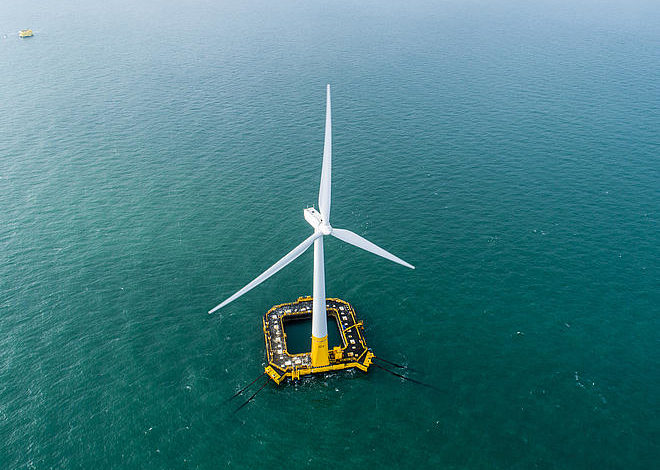BW Ideol inks Port Talbot floater pact with ABP

Recently privatised floating wind company, BW Ideol, has teamed up with UK’s largest port operator Associated British Ports (ABP), to investigate the feasibility of serialised production of concrete substructures for floating offshore wind turbine foundations based on the BW Ideol design at ABP’s port of Port Talbot.
A memorandum of understanding between the duo has been signed in preparation for the Celtic Sea leasing round announced by The Crown Estate offering a market of multi-GW development potential. Port Talbot, located around 130 km from the project development areas is ideally located as a manufacturing base for BW Ideol floater technology.
Port Talbot is the only port in the Celtic Sea with the scale – both in terms of marine and brownfield land space availability – and technical capabilities to fully maximise the Celtic Sea supply chain opportunity and the jobs and prosperity benefits that it should produce, BW Ideol said.
“We can’t wait to start working with ABP at Port Talbot and we have no doubt that it will confirm that our patented concrete floating solution, which is the most compact and scalable solution on the market, is manufacturable at a large scale and will be able to equip future installation sites in the Celtic Sea while providing the highest level of local content.
“We have already demonstrated it in Scotland where we have developed fabrication methods able to provide floaters for the equivalent of 1GW per year,” said Paul de la Guérivière, CEO of BW Ideol.
ABP has the ambition to invest over £500m to transform Port Talbot into a major floating offshore wind (FLOW) hub for a wider network of ports. The investment is part of its sustainability strategy, launched earlier this year, which sets out plans for ABP and partners to invest £2bn into decarbonising its operations by 2040.
Andy Reay, ABP head of offshore wind, said: “ABP is looking to invest in new and repurposed infrastructure in Port Talbot to enable the port to host manufacturing, installation and supply chain activity for the FLOW sector, and are currently exploring the option of constructing heavy lift quays to link onshore storage land to the marine environment and create a GW-scale opportunity.
“This has the potential to create 16,000 new, high-quality jobs and attract £5.5bn inward investment in the wider regional economy. This agreement is an important step towards realising this ambition.”
